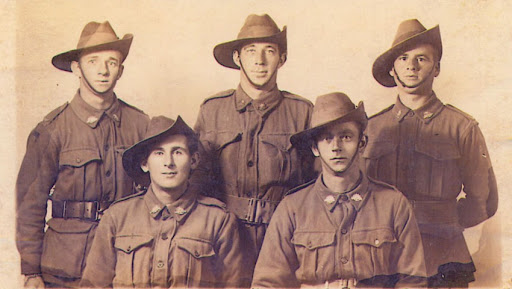Retired Major General and senator for NSW Jim Molan, AO, DSC has played a pivotal role in the #AnzacAtHome campaign to help Australians maintain the reverent commemoration of Anzac Day amid the COVID-19 pandemic.
To continue reading the rest of this article, please log in.
Create free account to get unlimited news articles and more!
I have commemorated Anzac Day in some strange places. Freezing cold Canberra at the crowded Australian War Memorial as a cadet, PNG at the start of the Kokoda Track, in various barracks around Australia, on the chilly Darling Downs in Queensland and once beside flooded Charleville, in Baghdad, in Jakarta, once in the Rocks as a politician and more recently and more often, with my RSL sub-branch at Queanbeyan.
However, this year might be the strangest. We commemorate Anzac Day in isolation due to COVID-19, but with the smell of the Black Summer bushfires still in our nostrils.
What each Anzac Day meant to me was in many ways determined by the surrounding. I have visited many old battlefields and been to Gallipoli several times, but never on Anzac Day. Based on my own experience of conflict and war, I have a feel for how the Australians that made the legend might have felt and therefore what we are commemorating.
As a Commanding Officer of an infantry battalion in the early '90s, I looked around at my soldiers’ faces and made the point that our faces may have changed a bit from the black and white photos of troops on Gallipoli, France, over Europe, at Kokoda, at Kapyong or even Vietnam, but our faces as Australian soldiers in Dili, Baghdad or Uruzgan span the decades.
I have spent much of the last few decades trying to figure out what the Anzac legend does mean, but also what it should mean. Nations need their myths and legends and we have those around Anzac and Australian soldiery.
The legend of Anzac was that in World War One we produced quite extraordinary forces, and again in World War Two, and with few exceptions we have produced quality forces to this day.
The forces we sent to Korea, Malaysia and to Vietnam, and then to East Timor, Iraq and Afghanistan, and to all our peacekeeping missions, can stand with the best.
There are exceptions and rarely have those exceptions been the fault of the troops, but normally of governments who put them into a situation where they failed.
I subscribe to the myth that we are the best soldiers in the world on one day of the year, on Anzac Day. On every other day of the year it is our duty as military and national leaders to be brutally honest.
Disaster soon follows if you start believing your own myths. Most Australians think that the Australian experience of conflict is the Anzac tradition, and we celebrate that as both myth and legend.
I don’t agree that the Anzac tradition is the underlying characteristic of the Australian experience of conflict. In my view, the Australian experience of conflict is unpreparedness, ironically, overcome by the Anzacs.
If you look at every conflict that we have been involved in, you will find unpreparedness behind the heroic efforts of our soldiers. We have been heroic and capable but also very, very lucky.
Someone once said that military history is normal history with the boring bits taken out. War and conflict is the normal state of human affairs yet we in Australia tend to treat conflict like we treat bushfires; suffer them, report on them, commemorate the sacrifice, mend the damage, forget the lessons and face the fires again in a cycle of unpreparedness.
We were less unprepared for Afghanistan and Iraq because they were so markedly Wars of Choice and our commitment was so small: we could choose the time, the place and the nature of our commitment, and the time of our going, so we could never fail.
The alternative to Wars of Choice are Wars of Necessity, where an enemy threatens us or our interests directly. Then we face conflict with what we have, or what we can cobble together, and perhaps on our own.
The UK politician and journalist Baron Finkelstein reminds us that this year we may come out of COVID-19 internationally with “sharper antagonisms and less trust”, and that on top of a pre-COVID-19 strategic environment that was more unpredictable than any since 1939. It is as stupid as facing a fire season on top of a drought without hazard reduction of fuel loads.
If the point of Anzac Day is to commemorate the sacrifice of those veterans that went before us, in the midst of COVID-19, what would they say to this generation?
The best thing that we as a nation can do for the Anzacs that went before us is to have no more veterans in the future. Commemoration of our heroes should be the main aim of the day, but we should put aside a few minutes throughout the day asking ourselves what we can do to prevent the generation of more veterans of wars?
The answer is as obvious as is the answer to preventing bushfires: be so prepared that wars are deterred because an enemy knows they cannot be successful, and be able to win if deterrence fails.
Let’s not expect our Anzacs of the future to once again have to sacrifice to overcome unpreparedness. Only governments can lead this, no one else. But it is the responsibility of the nation to be prepared, not just the ADF.
On Anzac Day, I will commemorate past sacrifice, but I will also pledge myself to work within government to support real sovereignty for this nation based on self-reliance and resilience. Lest we forget.
Jim Molan is a senator for NSW. He retired as a Major General from the Australian Army in 2008.

 Login
Login







